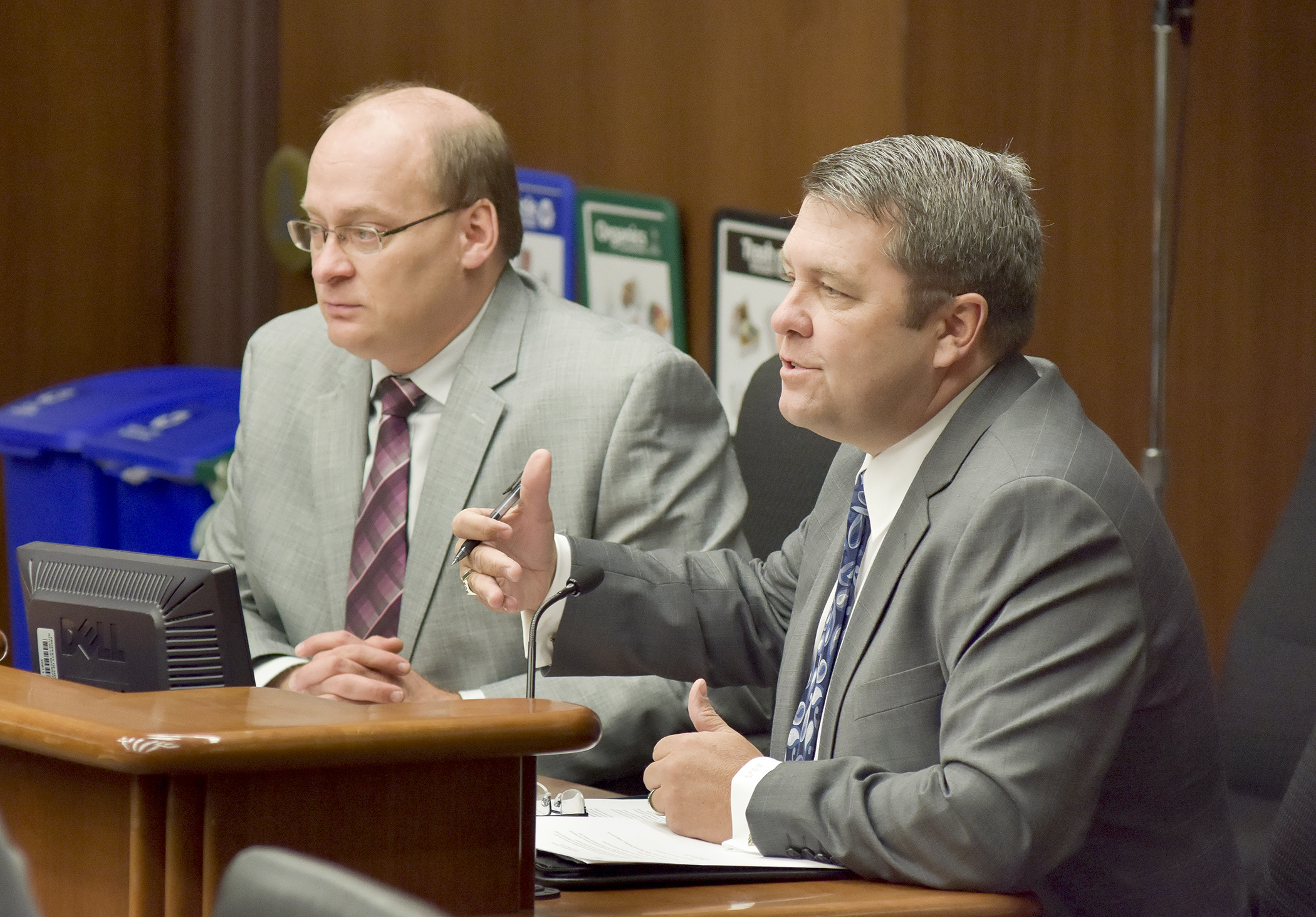EMT shortage prompts bill to allow for out-of-state providers

When Browns Valley suffered a flood while Rep. Jeff Backer (R-Browns Valley) was serving as mayor, the city had to call on outside emergency medical personnel. But because the nearest help was in the Dakotas, not Minnesota, they had bring in EMTs from Detroit Lakes, more than 100 miles away, Backer said.
Licensed EMTs and paramedics would be authorized to work in other states on a short term, intermittent basis without facing legal repercussions under HF324, sponsored by Backer, he told the House Health and Human Services Reform Committee Thursday.
The bill was referred to the House Committee on Civil Law. There is no Senate companion.
HF324 would create an agreement between states that would allow EMTs and paramedics to work across state lines when needed. It would simplify care near state borders and allow a rapid response to natural disasters in other states, said Backer, who serves as a volunteer EMT for Browns Valley Ambulance.
“We, as EMTs, get nationally certified … we all have common training,” he said. “When we … want to go and help in natural disaster, currently the process is very slow…this just opens it up so we can be down there quicker.”
Even if passed in Minnesota, HF324 would not become active until 10 states have signed it into law, Backer said.
According to the National Registry of Emergency Medical Technicians, seven states have passed their own versions of the bill: Colorado, Texas, Virginia, Idaho, Utah, Kansas and Tennessee. Backer said the bill is under consideration in eight other states, including Minnesota. Complaints made against out-of-state EMTs and paramedics would be referred to their home states and handled according to that state’s laws, said Buck McAlpin, legislative consultant to the Minnesota Ambulance Association.
Information about EMTs, including any disciplinary measures taken against them, would be available to all participating states through a coordinated database. The bill also requires criminal background checks of all EMTs and paramedics as well as fingerprinting, McAlpin said.
Currently, drivers with the Minnesota Special Transportation Service, which serves elderly and disabled people, are required to be fingerprinted as part of the background check process, but EMTs and paramedics are not, McAlpin said.
Rep. Duane Quam (R-Byron) encouraged the committee to ensure that HF324 would not impact Minnesota’s ability to be innovative and make independent decisions.
“Minnesota tends to be ahead (of other states),” he said, citing a 2011 law that allows community paramedics to meet the needs of underserved communities. “I like the bill. I like the intent. I just want to make sure we don’t have any future, unintended consequences.”
Related Articles
Search Session Daily
Advanced Search OptionsPriority Dailies
Legislative leaders set 2026 committee deadlines
By Lisa Kaczke Legislative leaders on Tuesday officially set the timeline for getting bills through the committee process during the upcoming 2026 session.
Here are the three deadlines for...
Legislative leaders on Tuesday officially set the timeline for getting bills through the committee process during the upcoming 2026 session.
Here are the three deadlines for...